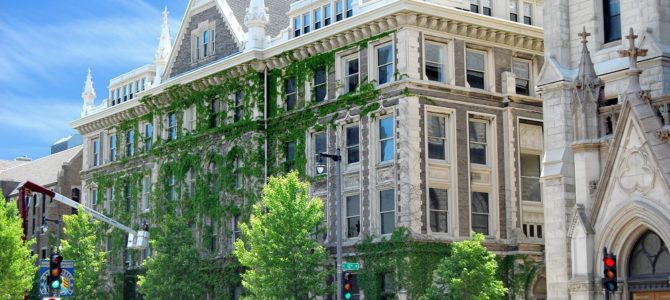Intolerance towards conservative speakers on college campuses often follows the same story line: A small cadre of student activists and professors shout down or disrupt the appearance because they have determined that ideas themselves are akin to physical violence. But the suppression of speech also comes in quieter forms with even graver consequences.
At Marquette University in Milwaukee, Wisc., the climate of campus intolerance towards conservative voices has done more than ruin a speaking event. Tenured political science Professor John McAdams, who also happens to be a conservative, has been placed square in the crosshairs by his faculty peers and an administration that has decided their contractual commitment to academic freedom shouldn’t have to cover the free expression of viewpoints they don’t like. McAdams’s livelihood, career and reputation hang in the balance of a Wisconsin State Supreme Court case, the most important academic freedom case in the country.
Marquette University fired McAdams in 2015, after he wrote a blog post about an incident between a student and a graduate instructor. Following a classroom discussion on John Rawls, philosophy instructor Cheryl Abbate told a student that she would not permit opposition to same-sex marriage in her classroom because such views would “come off” as “offensive” and “homophobic.” When the student complained to the department, he was told to change his attitude and that he would be “watched.”
The matter might have ended there, but the student had recorded the conversation and brought it to McAdams, who has long enraged the campus left and bothered administrators with his personal blog, The Marquette Warrior. He frequently comments on what he sees as the university’s commitment to intolerant forms of political correctness on the blog. McAdams believes that a teacher who tells a student that his views on marriage are out of bounds has acted to stifle the open discourse that ought to be encouraged on a college campus.
His post went viral. Local and national outlets highlighted the story. Abbate did receive a number of hateful and ugly emails and letters following the blog post, although McAdams had nothing to do with them.
Alarmed by what it regarded as bad publicity, Marquette University administrators quickly determined that Abbate, despite her role as the instructor who prohibited debate in her classroom, was a victim and that McAdams’ blog post criticizing that position meant that he had to go. According to Marquette, it was an attack on a student – even though Abbate was acting as a paid instructor imbued with the authority of the university – and proudly noted that she was teaching the student that “oppressive discourse” would not be tolerated. McAdams was banned from campus and awaited a pro forma faculty review whose clear intent was to set the stage for his termination.
The panel – which included at least one professor who had publicly condemned McAdams at the time of the post – acknowledged that there was no prohibition, either in university rules or commonly accepted notions of professional conduct and academic freedom, against criticizing a colleague (or even a student) and identifying the person that one is criticizing. Nevertheless, the panel concluded that he should not be fired, but suspended for two semesters because he “should have” known that his actions would “harm” Abbate.
Marquette University President Michael Lovell proceeded to terminate McAdams anyway by making his reinstatement contingent upon a Soviet-style admission of wrongdoing. McAdams refused to engage in such coercive speech, and in May 2016, the Wisconsin Institute for Law & Liberty sued Marquette University on McAdams’s behalf for breach of his employment contract. The case is now before the Wisconsin Supreme Court, which agreed to an original action to bypass the Court of Appeals, after a trial judge in 2017 ruled in favor of Marquette. Oral argument is scheduled for April 19, 2018, with a decision expected in June or July.
Marquette University is a private institution. Nevertheless, like most such institutions, Marquette chose to guarantee academic freedom and the right of “legitimate personal expression” to their faculty. McAdams was promised that he would not lose his job over First Amendment protected speech. But that is exactly what took place.
Marquette is attempting to fire a tenured professor for public comment on a matter of great public and institutional concern. While Marquette argues that he did not “need” to identify the person he was criticizing or link to her public website, both are common features of public discourse. The university held him responsible for how others reacted to the accurate description of Abbate’s decision to tell an undergraduate that his views would not be tolerated. But if the measure of a professor’s right to speak is the reaction of others, no one will ever know what he or she can safely say.
Marquette violated their contract with McAdams and our lawsuit on his behalf intends to right that wrong. But this case is about more. In our divided and fractured culture, tolerance for opposing viewpoints is more important than ever. Universities may see themselves as the vanguards of intellectual rigor and free expression. But tolerance requires respect for opinions we don’t like and free expression a wide berth for the often-messy exchange of ideas. Courage, consistency and commitment to ideological diversity are worth protecting, for without them education only becomes indoctrination.








